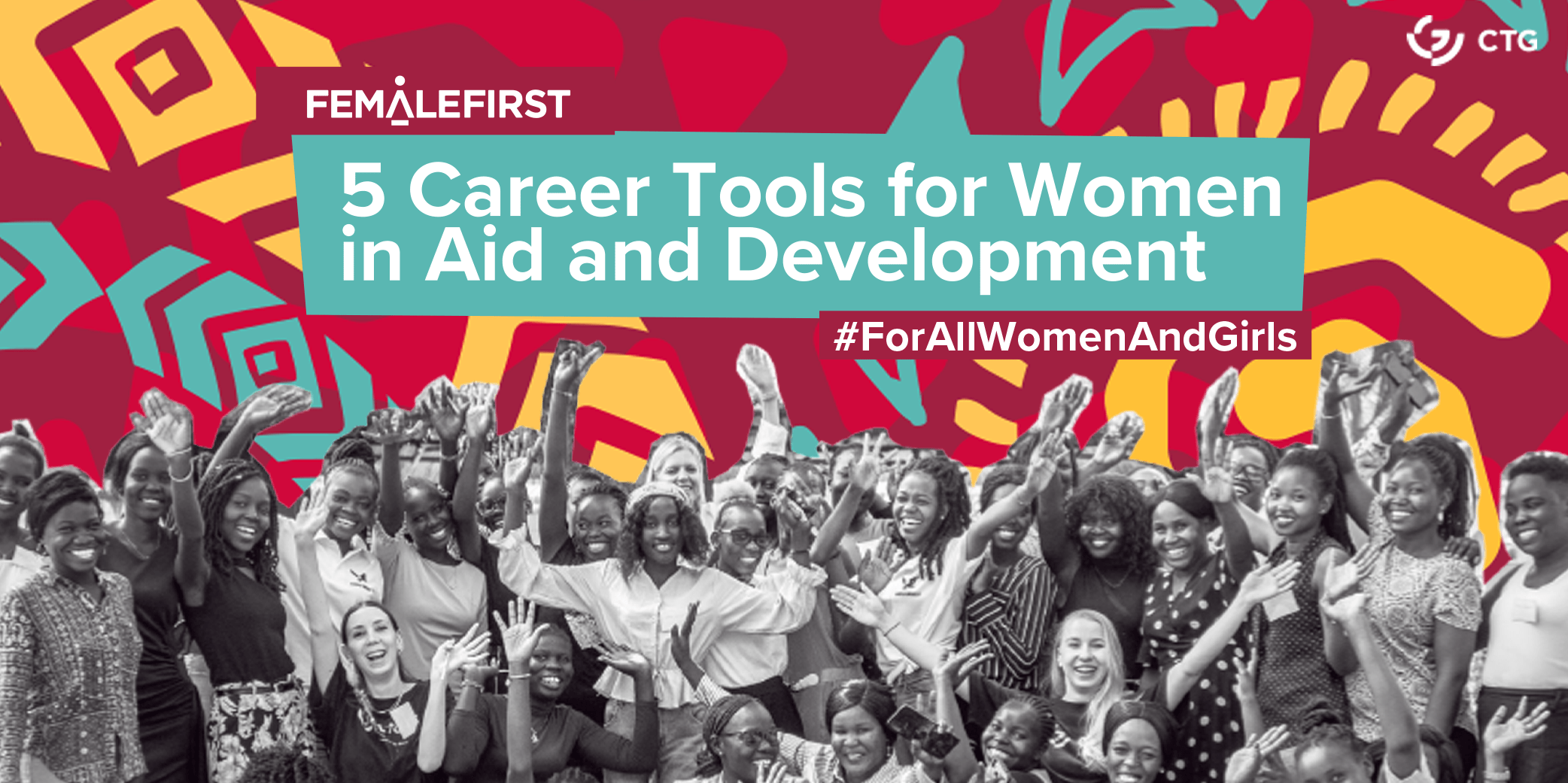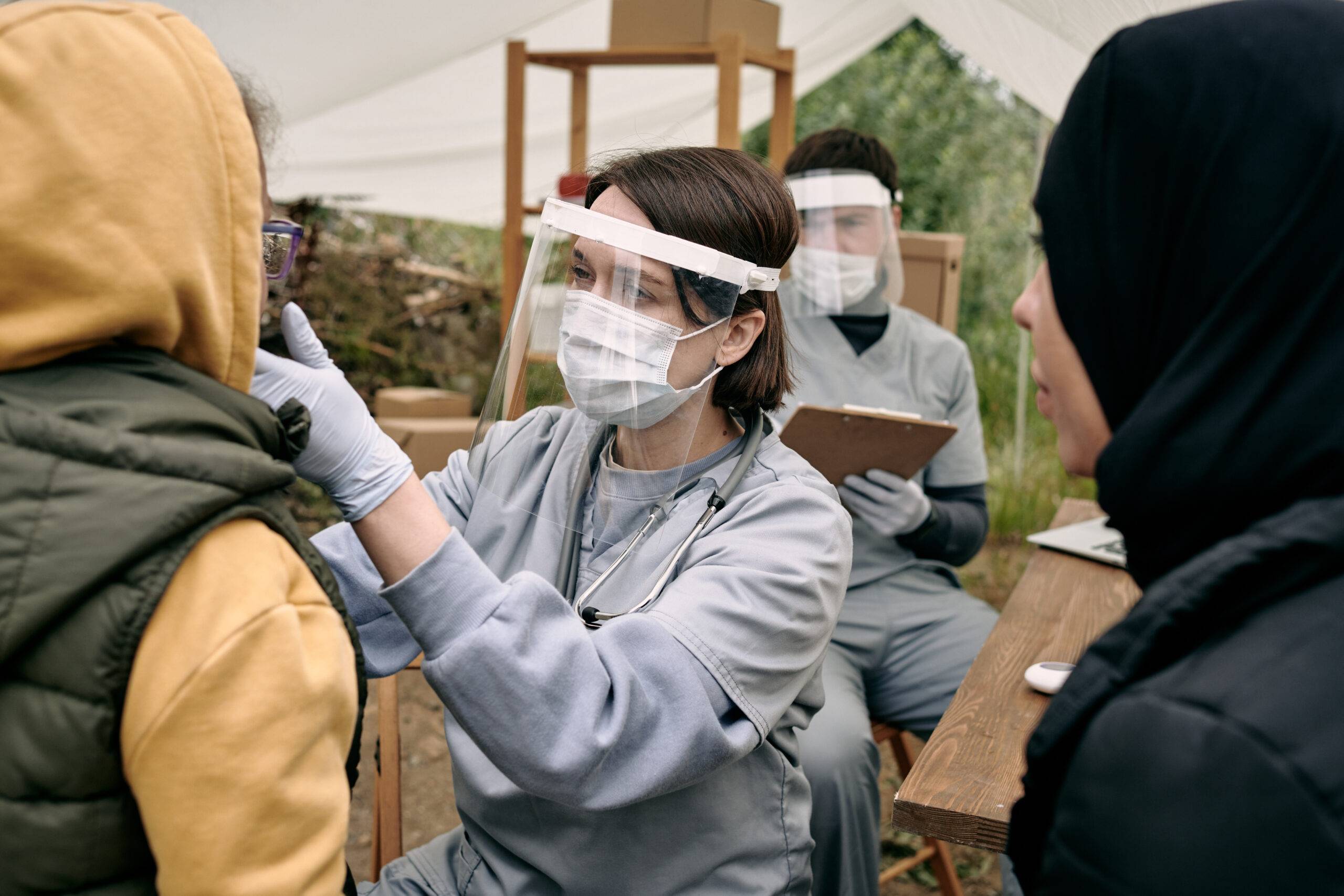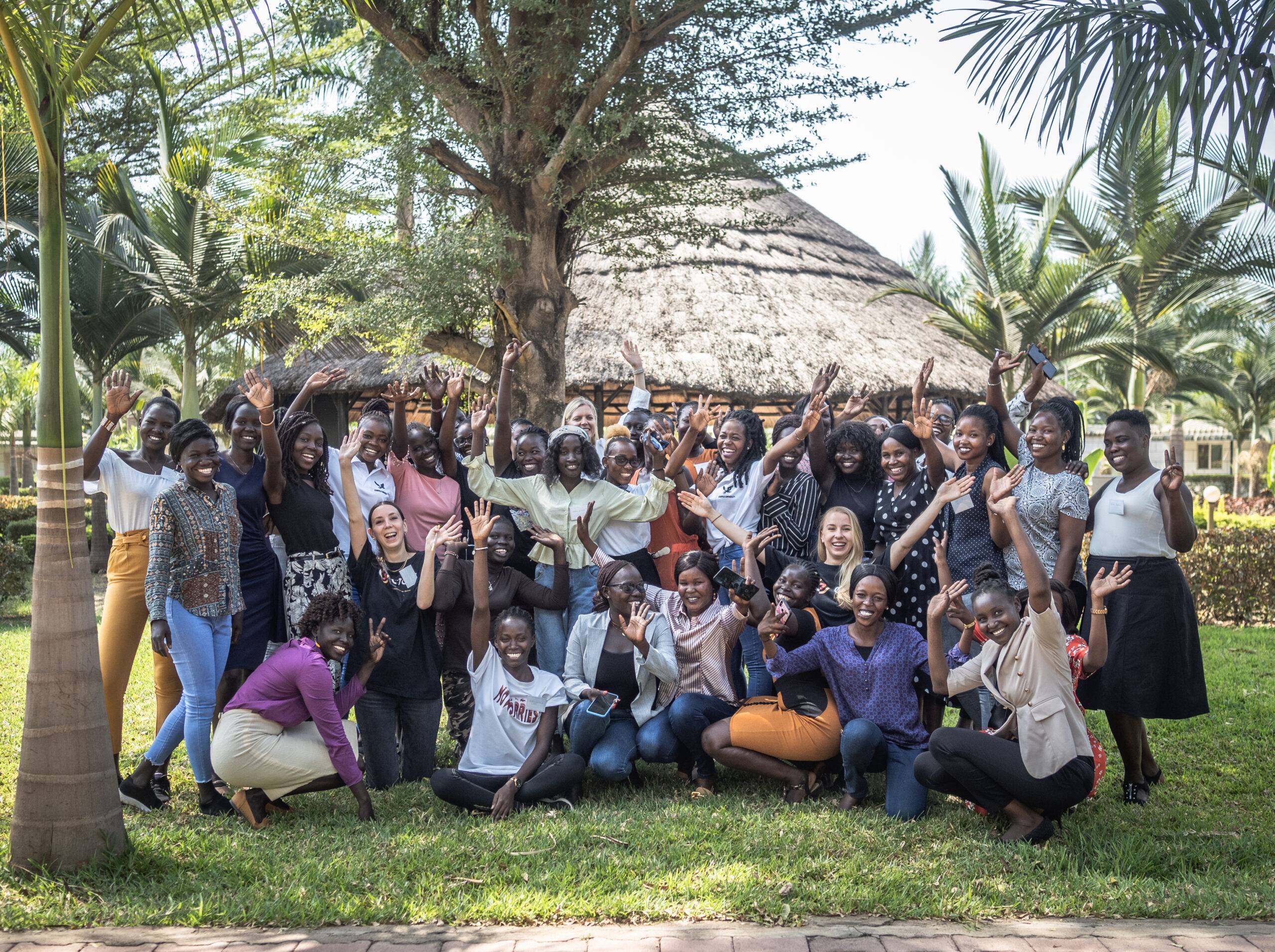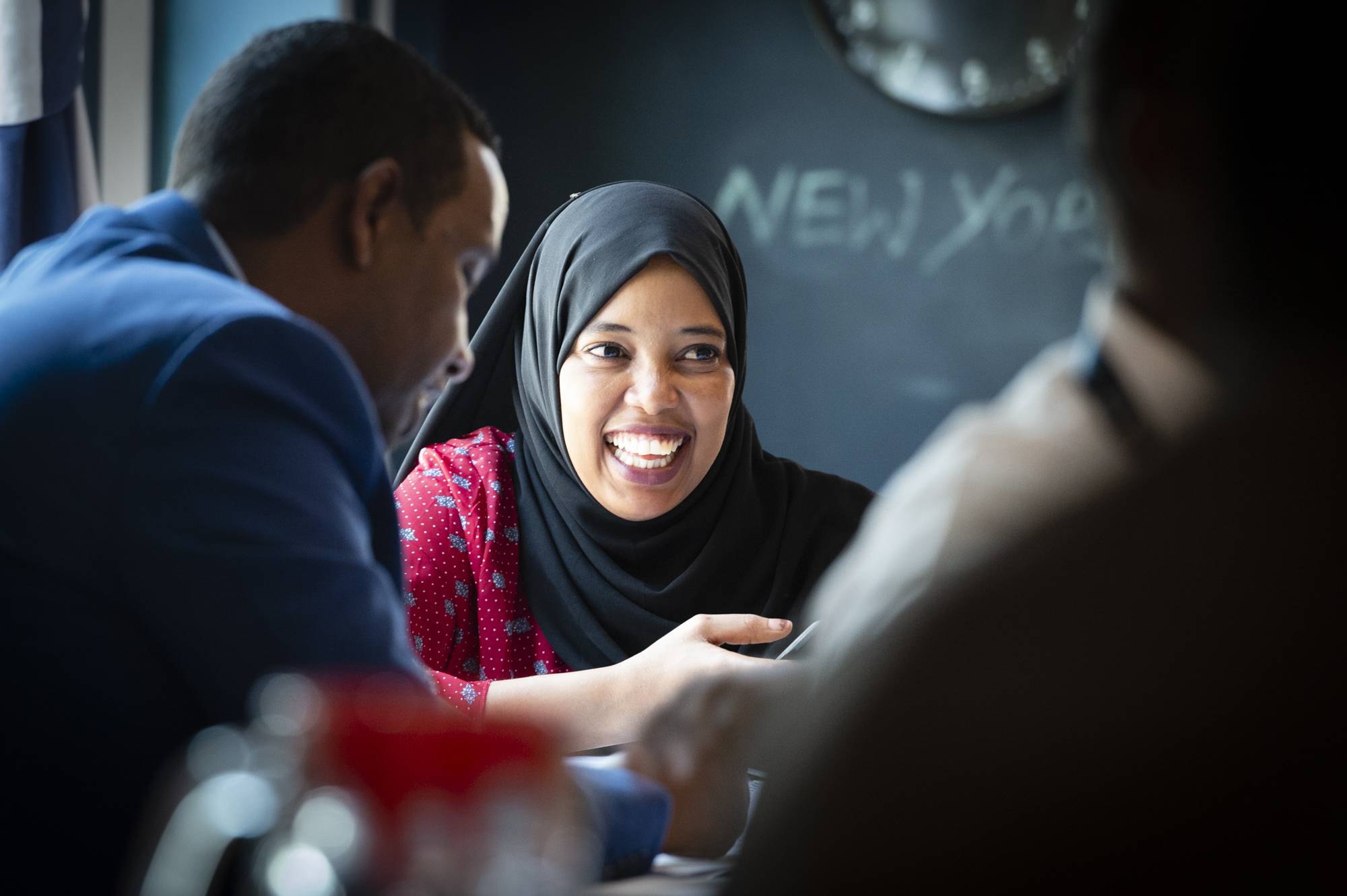5 Career Tools for Women in Aid and Development

30 years after the Beijing Declaration and Platform for Action – still considered the most complete and progressive platform for advancing women’s rights – was adopted, the world remains starkly unequal.
Currently, 10.3% of women live in extreme poverty and over 2.7 billion women are legally restricted from having the same choice of jobs as men. Once women do enter formal employment, the gender wage gap is estimated to be 20%, and in some cases even higher. As of 2023, women accounted for 41.9% of the workforce worldwide, while only 32.2% were in senior leadership positions. And, when it comes to political leadership, only 28 women serve as Heads of State or Government across 27 countries. At this current rate of progress, it will take another 130 years before gender equality is achieved in top leadership roles.
International Women’s Day 2025 is a call to action – an urgent request to accelerate change and fulfil the promise of gender equality. This year’s theme, For ALL Women and Girls: Rights. Equality. Empowerment, highlights the urgent need to empower women as key agents of progress, ensuring they have the resources and opportunities to claim their rights and shape their own futures. The world cannot afford to wait for another 30 years to experience gender equality.
CTG’s commitment to women’s empowerment
CTG is deeply committed to gender equality and women’s empowerment. Our efforts are guided by Sustainable Development Goal 5 (Gender Equality), and we integrate the Women’s Empowerment Principles (WEPs) throughout our operations for which we have been recognised and awarded.
Empowerment is about dismantling systemic barriers, expanding access to opportunities, such as education, employment, and leadership, and creating inclusive decision-making spaces. At CTG, this means actively reshaping the humanitarian sector by recruiting, supporting, and championing women in humanitarian careers – because real change happens when women are at the forefront of solutions.

Empowering women in humanitarian aid is vital for effective, inclusive responses.
Why empower women in aid?
Empowering women is essential for driving meaningful change. It’s not just about equity, but effectiveness.
Women provide perspectives and skills that are essential to addressing the diverse needs of crisis-affected communities. Their involvement ensures aid programs are comprehensive and sensitive to the unique challenges and interests of women and children.
However, women still face barriers to entry. They lack equal access to education, professional development, and leadership opportunities within the humanitarian and development sector. While women make up over 40% of the humanitarian workforce, they hold only 20-25% of senior positions. When women are empowered into leadership and decision-making positions, they can help build a more effective and representative humanitarian response.
CTG wholeheartedly supports the empowerment of women in the humanitarian and aid sectors. We invite women to make use of these five resources to enhance their chances of starting or advancing in their careers.
1. The Female First initiative
CTG launched Female First on International Women’s Day in 2017 with the mission to create a more equitable and inclusive aid and development sector in fragile and conflict-affected countries. We aimed to improve women’s access to decent work in aid and development and set a goal to have women represent 30% of our project-related roles by 2030.
While we reached and exceeded that goal in 2022, eight years early, the number of women in project-related roles has since fluctuated due to the short-term nature of humanitarian and development programming. This is an example of where our ongoing efforts are needed – achieving gender equality is continuous challenge. We remain steadfast in our commitment and continue to embrace the three-step Female First approach to recruitment:
- Source – Build our talent pool of qualified women humanitarians.
- Submit – Ensure women are represented in shortlists.
- Select – Advocate for the importance of women’s participation in the workforce
Together with other empowerment programmes, such as the Women in Aid Internship Programme, CTG continues to prioritise the employment of women at every turn.
2. CTG’s humanitarian job portal
CTG encourages qualified female candidates to apply to vacancies on our job board.
If you spot your dream job, don’t hesitate to apply! Research shows that talented women often hold back from applying for high-level positions because they worry they’re not qualified enough. But men tend to apply even when they don’t meet every single requirement. If you’ve got the skills and experience, don’t let self-doubt stop you from seizing the opportunity. Join our talent portal to view our current vacancies and to find job opportunities that match your skills, interests and experience.
We also send out a weekly newsletter to everyone in our talent pool, so you’ll always be in the loop on the latest job openings at CTG. It’s a great way to stay updated on new opportunities that could help boost your career in the humanitarian sector.
If you spot a role you’re interested in, but you have more questions about it you can contact CTG Recruitment directly at rrad@ctg.org.
3. Women in Aid Internship Programme
Internships can be a game changer for your career. Unfortunately, women remain underrepresented in roles within the aid and development sectors, particularly in leadership positions, with opportunities diminishing as their careers progress.
This is where internships come in: to help change these stats and empower the next wave of female leaders, CTG’s Women in Aid Internship Programme provides young women with hands-on work experience, equipping them with the skills and confidence needed to build successful careers in the sector and beyond.
Lasting three to six months, the programme is hosted at CTG’s management or field-support offices, where interns take on clearly defined responsibilities. The skills you learn depend on the role, which can range from account management and finance to security or marketing, but the main focus is on providing hands-on workplace exposure. You’ll gain valuable experience but also contribute meaningfully to the organisation, fostering a more inclusive and equitable future for women in humanitarian and development work.
Keen to kick-start your career with CTG? We’d love to hear from you! To apply for an internship, simply send your CV and a cover letter telling us where you’re based, what sparks your interest, and why you’re eager to join our dynamic team. Send your application to enquiries@ctg.org.

CTG’s Female First initiative, launched in 2017, aims to increase women’s participation in aid and development.
4. CTG’s career guidance
Looking for a new opportunity in aid and development? We’ve got your back! We offer career resources designed by our expert recruiters, who have been placing humanitarian staff since 2006, to help guide you through every step of the job process.
Right now, we’ve got two essential guides for you: Optimising your UN Job Application and UN Competency-Based Interviews. These guides are packed with tips to boost your chances of landing a job in the humanitarian sector. The interview guide, in particular, breaks down the different types of questions you might face and shows you how to craft answers that will impress.
5. CTG Learning and Kaya
We believe it is essential for our staff to access learning opportunities to broaden their skills, grow their careers and ensure their safety in the field. That is why we partnered with Kaya, the respected humanitarian e-learning platform, to create CTG Learning. CTG Learning not only gives CTG staff access to our mandatory trainings, but also to hundreds of free courses ranging from security awareness to gender equality in humanitarian contexts.
Even if you are not a CTG employee, you can still access invaluable learning on Kaya. With self-paced courses, MOOCs, webinars, and workshops, Kaya equips you with the skills needed for a successful career in humanitarian aid. Open to all, its diverse courses cover everything – empowering you to make a real impact, no matter where you are in your career!

Kaya offers free humanitarian e-learning courses to boost skills, career growth, and field safety.
Employers empowering women
Empowering women is a shared responsibility, and it starts with decision-makers, executive leadership, and senior management. Both the private and public sectors need to step up – not just by offering job opportunities to women but by actively bringing qualified women into leadership roles with real responsibility.
CTG’s Female First Toolkit supports private sector, humanitarian, and development communities in promoting women’s economic empowerment through processes, recruitment, programs, and policies. It offers practical guidance and highlights opportunities to integrate gender considerations into organisational practices, driving greater impact and success.
For ALL women and girls
The 30th anniversary of the Beijing Declaration and Platform for Action marks a pivotal moment in the global movement for gender equality. Women’s rights are now facing new challenges and setbacks and, as we honour this milestone, it is imperative to accelerate our efforts to empower women, particularly in sectors like humanitarian aid where their contributions are invaluable.
By combining targeted recruitment with continuous skills development, CTG is ensuring that more women can access, thrive in, and shape the future of humanitarian aid.
Learn how you can further support female colleagues or friends in their careers here.
